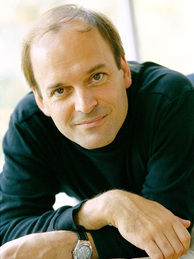
Franz Liszt couldn’t have hoped for a more committed champion than Louis Lortie.
The Hungarian composer, who was born 200 years ago, is the current beneficiary of Lortie’s intense style of programming. The 52-year-old Canadian pianist has a penchant for throwing himself wholeheartedly into the music of a single composer. First, it was Ravel, in the late 1980s, then it was Chopin’s turn – and, after that came years devoted to Beethoven and Mozart.
But Lortie has his ways. For Sunday’s program he played all three sets of Liszt’s Années de pèlerinage (or Years of Pilgrimage): Liszt’s collections of descriptive pieces inspired by his travels in Europe and composed between 1848 and 1867. It was almost exactly the same program that fills a two-CD set Lortie recorded for England’s Chandos label earlier this year.
For the recital, Lortie had a special instrument brought in: a piano built by Steingraeber & Sons, a German firm that’s not well known in North America. Liszt owned a Steingraeber – and the instrument Lortie played on is a modern copy of it.
Liszt owned lots of different pianos, so I’m not sure what purpose was served by this nod to period authenticity. However, Lortie proved this piano to be a fine instrument, sturdily capable of withstanding punishing use – and he proved it with a performance that was unfailingly impressive, if sometimes veering toward the excessive.
In the first set, invoking Liszt’s travels in Switzerland, Lortie lost no time revealing how deeply he’s delved into this music. From the opening movement, Chapelle de Guillaume Tell, he emphasized contrast. When power was called for, his fortes were daunting – and sometimes also harsh. Add to this a liberal approach to pedalling, and textures could be muddied.
Au lac de Wallenstadt introduced a different facet of Lortie’s Liszt: a kind of dreamy lyricism, full of gentle murmurs and undulations – and this led nicely into the coyly lilting Pastorale and the effervescent Au bord d’une source. This was highly refined playing – and difficult to do, although Lortie made it sound easy. However, the challenges of Orage were entirely obvious: thundering octaves that Lortie pounded out with ferocity.
And so it went, throughout the recital: nuance, sensitivity and beauty were often juxtaposed with a blunt brutality that – although astonishing, in its way – did violence to the music and undermined its full expressive potential.
After the first set, Lortie chose to jump to the third. There’s a sombre, subdued quality to much of this music that tended to steer Lortie away from bombast. In both Au cyprès de la Villa d’Este movements, unsettled “advanced” harmonies were effectively emphasized. And in the second of the two, a magical transformation took place, as darkness gave way to soft, shimmering light. Directly following, Les jeux d’eaux à la Villa d’Este sparkled delightfully.
The second set of the Années (subtitled “Italy”) inspired some of Lortie’s finest playing of the afternoon. The three famous Sonnets of Petrarch were lush and lyrical, with fascinatingly beautiful inner passages. In the final movement, Après une lecture du Dante, Lortie underscored the furtive opening before launching into a wild and furious ride. Here, at last, was power and richness combined in one tour de force performance.
© Colin Eatock 2011
 RSS Feed
RSS Feed

